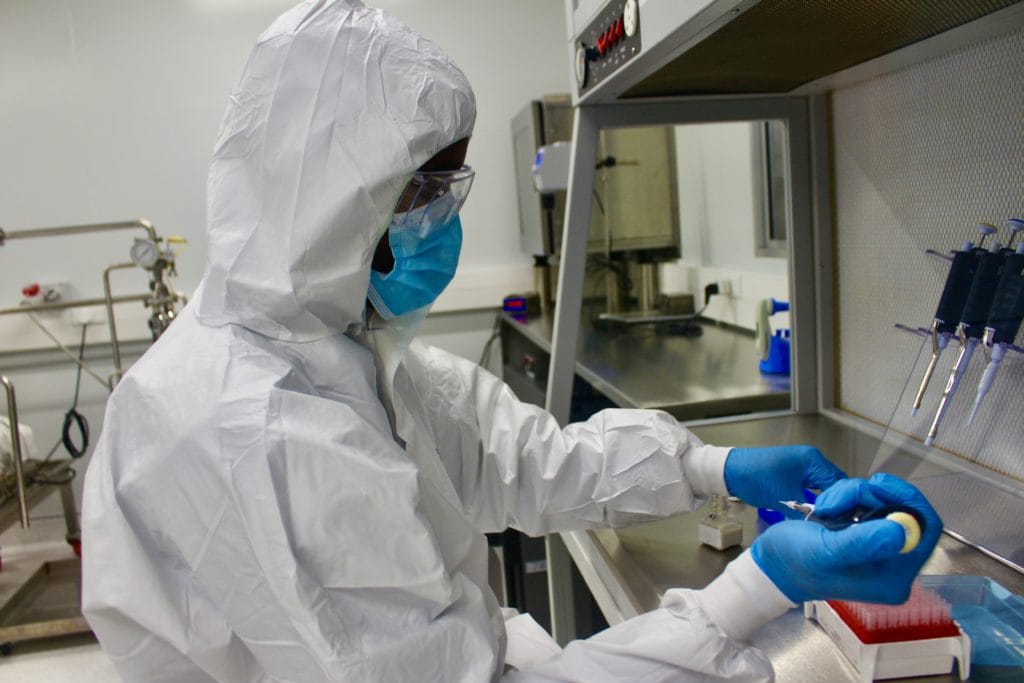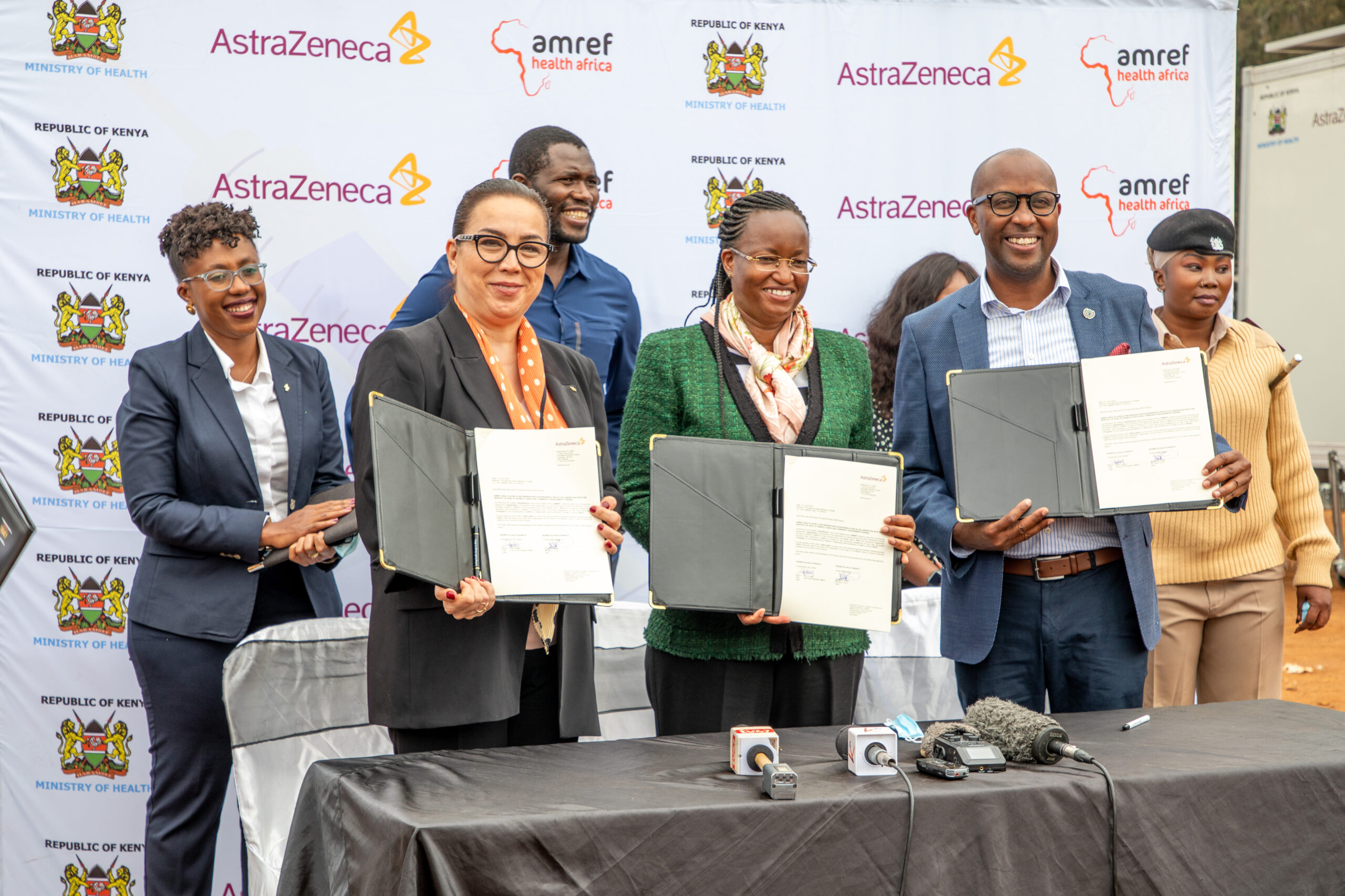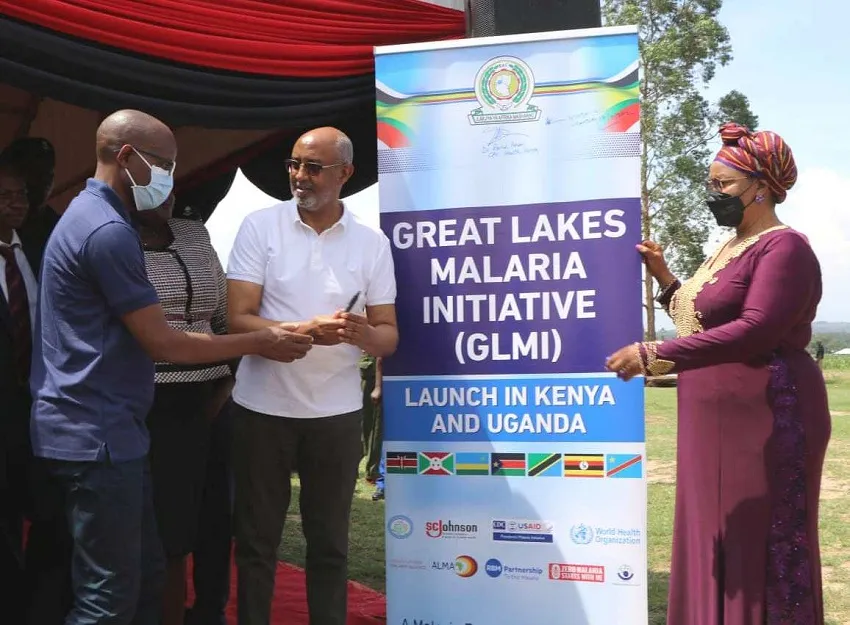Meet Margaret Kilonzo, a Community Health Worker fighting COVID-19 in the largest slum in Africa
Monday, 11 May, 2020

Community Health Workers (CHW) like Margaret Kilonzo have become the first line of defense in the fight against Coronavirus. Living in Kibera, Africa’s most densely populated slum, every day, her role is crucial as she provides lifesaving interventions to protect her community from the virus.
Even as the Kenyan Government struggles to control the spread of Coronavirus Disease (COVID-19), CHWs like Margaret are playing an important role in reducing transmission at the community level through the promotion of preventive measures, saving lives.
For 20 years serving as a CHW, Margaret has previously taken lead in the fight against Cholera, HIV/AIDS, and TB among other diseases and now, Coronavirus.
“This is the first time we are dealing with a highly contagious disease. It is a very sensitive disease and we are taking it very seriously,” she says.
According to Margaret, since the first case of Coronavirus was confirmed in Kenya, the majority of Kibera residents have fueled rumours, mistrust, fear, and panic among themselves. However, the provision of information about the disease by CHWs helps reduce fear and anxiety among families.
“As trusted members of the communities, our relationship with the community is very strong and they listen to what we tell them. My role is to reassure them and give them the right information,” she affirms.
Margaret is among 53,000 CHWs in Kenya trained by Amref Health Africa using Leap, a mobile health platform developed by Amref Enterprises Limited. Through the App, health workers including CHWs are being trained to identify signs and symptoms and refer suspected COVID-19 cases as well as maintain safety standards at points of entry or high-risk areas to prevent possible transmission.
Margaret is using the knowledge she has gained from the App to educate her community using easier terms such as ‘slang’ or local language to help everyone understand.
“The information I get from Leap is important because it is connected to the Ministry of Health guidelines. I teach my community to wash hands regularly, avoid congested areas and handshakes to prevent spreading or contracting Coronavirus,” she explains. “Social distancing remains a big challenge in the slum,” she adds.
To ensure the CHWs protect themselves while spreading lifesaving information to communities’ in high-risk areas, Margaret explains, “Even as we walk from door to door, we have to protect ourselves adequately. I have to wear a mask, gloves and ensure that I don’t get close to people when I visit. I prefer talking to them outside the house because most of them live in small rooms.”
Her work during this crisis has had a fair share of challenges. Lack of personal protective supplies is a great problem facing many CHWs like Margaret.
“We do not have enough gloves and masks for using every day, they are very expensive for us to buy,” laments Margaret.
Margaret recalls several times she has visited families only for them to ask her for help as they live from hand to mouth. She confirms that some of the interventions such as social distancing are very hard to put into practice especially in a slum setting where most families of more than five members live in a small room and with neighbours in most cases sharing a wall and living less than 2cmm from each other. Lack of access to sufficient water is also a challenge since most people buy water for their families and hence it becomes hard to choose between washing hands and using the water to cook or drink.
“Every time they see me, they expect help since most of them have no food. It is difficult to tell someone to wash their hands yet they cannot afford food, how will they afford to buy soap? It is difficult,” she narrates.
Despite many challenges, Margaret puts her community first and the good news is that CHWs remain dedicated to saving lives in most vulnerable groups who live in extreme poverty with no access to life-saving information.
According to Margaret, the involvement of CHWs is crucial in preventing community transmission of Coronavirus by providing trusted and clear information and therefore they should be supported just like other health workers at the frontline.
“We are risking our lives to save thousands of people in our communities who do not have the knowledge and information about this disease. Please support and help us to save lives,” she concludes.
By: Maureen Cherongis
Media and External Relations Officer
Amref Health Africa







